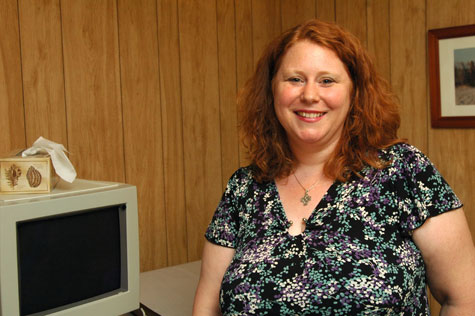 FACE OF A MOVEMENT Rachel Nguyen says she is offering "non-judgmental" support for the vulnerable. |
The election of Barack Obama has inspired dread among pro-lifers nationwide. But for the Rhode Island wing of the movement, the anxiety goes back quite a bit farther.
For years, polling data have pointed to a strong pro-choice majority in this heavily Catholic state. And a relatively conservative General Assembly has spent the better part of the last decade sidestepping abortion politics — loathe to arouse the passions of voters on either side of the issue.
"It's a politician's dream," said Barth Bracy, executive director of the Rhode Island State Right to Life Committee, "and a constituent's nightmare."
But if the political muscle that produced a few key abortion restrictions in the '70s and '80s has atrophied of late, the movement has built a quiet strength in unexpected places: a small stucco building on Federal Hill, a shopping center in Newport, an unremarkable strip mall in Cranston.
Here, a handful of pro-life pregnancy counselors are measuring progress one client at a time: a woman, here, who decides to forgo an abortion after viewing an ultrasound; another, there, who turns to a Bible study class to come to terms with a 20-year-old decision to abort.
These are Rhode Island's crisis pregnancy centers, part of a nationwide network of some 2000 to 4000 such organizations that aim to curb the number of abortions in a nation where one in three women will terminate a pregnancy by age 45 if current trends persist.
It is, on its face, an admirable pursuit. Even the most determined defenders of the right to choose envision a time when no woman will feel compelled to consider abortion. But in recent years, a crisis pregnancy center movement that flew under the radar for decades has drawn ever more intense scrutiny.
An elevation of the centers from grassroots phenomenon to centerpiece of President Bush's compassionate conservative agenda meant some $30 million in federal funding for the organizations between 2001 and 2006 alone, according to a Congressional report. And abortion advocates are now pressing the Obama Administration and Democrats in Congress to defund the centers.
"What they're appearing to provide, it's just not real," said Robin Dionne, president of the board of directors for 2 to 1: The Coalition to Preserve Choice, a Providence abortion rights group.
Critics say the centers engage in deceptive advertising. Mislead about the risks of abortion. Distort one of the most important and intimate decisions in a woman's life.
And it is a potent critique. Many crisis pregnancy centers, also known as "pregnancy resource centers," are spreading information that is plainly inaccurate.
But the abortion war, like most conflicts, is messier and more complicated than it might appear. And pro-choice advocates who peer over enemy lines, here, might be surprised at what they find.
'THEY NEED COMPASSION'
Rachel Nguyen, executive director of Care Net-Rhode Island in Cranston, talks more like a liberal New Age spiritualist than a committed pro-lifer. And no wonder.
She attended a Unitarian Universalist church as a child. Dabbled in Tarot and Buddhism as she grew older. Spent several years training upper middle-class couples in the Bradley Method of natural childbirth.
And Nguyen, who has taken her Vietnamese husband's last name, was pro-choice for many years.
But her views began to shift when she got pregnant for the first time. She felt a change, she said. Something biological, of course. But something deeper, too. Something maternal that made abortion unthinkable.
It was a personal conviction, at first. Nothing more. But a religious awakening six years ago helped turn it into something larger, pushing her toward what she calls the "ministry" of Care Net-Rhode Island.
Nguyen says she didn't enter the field to push some sort of rigid dogma, though. Christ's teaching, she said, is to offer "non-judgmental, compassionate support" to the vulnerable.
"It's not about expecting people to do what we want them to do in order to get that love and support," she said. "Christ did not ask people to convert in order to be loved and supported by him, he simply did it."
The center — like most, a private Christian charity — offers its services free of charge. There is counseling for women with unplanned pregnancies. Bible-based, post-abortion group therapy. Religiously themed "sexual wholeness" classes for those uncomfortable with their sexual history.
Parenting courses are available for the expecting mothers and their partners. A volunteer doula helps clients in the delivery room. Those who participate in center activities get "gift certificates" for clothes, diapers and toys, neatly displayed in a back room.
And Care Net-Rhode Island, part of a national network of some 1100 Care Net centers, is one of hundreds of crisis pregnancy centers that have tapped conservative advocacy group Focus on the Family's "Option Ultrasound" program to purchase an ultrasound machine, part of a broader "medicalization" of the movement.
The offerings, taken as a whole, suggest a systematic attempt to dissuade women from seeking abortions. But Nguyen and others at Rhode Island's crisis pregnancy centers insist there is no political motive behind their work. No attempt, in Nguyen's words, to build "a way around" Roe v. Wade.